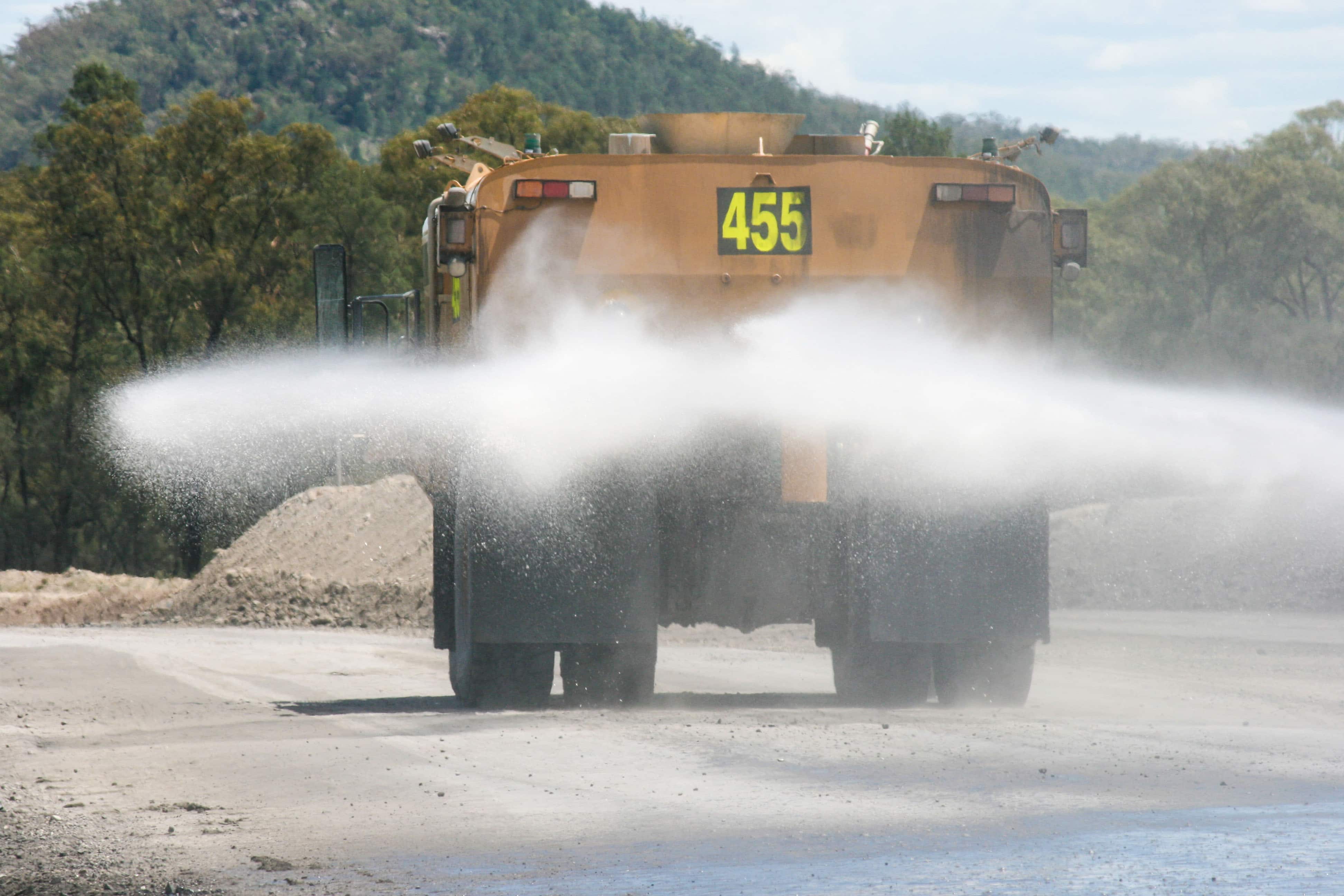
With haul roads on mining sites, it’s often a ‘feast or a famine’ scenario: the surface is either too dry and dusty, or too wet from excessive watering.
Both aspects of haul road safety are problematic, but in this article let’s concentrate on the latter – overwatering, which can often result in an uncontrolled and unsafe work environment.
It’s a big problem that can lead to a stack of incidents, usually as a result of:
- Out of control sliding & skidding
- Corner camber damage (sinking & rutting)
- Rollovers
- Collisions on ramps
- Crashes into berms (bund walls)
- Impacts at intersections, and
- Collisions with the water trucks themselves.
Naturally the problem can be alleviated by mine vehicle drivers adjusting their speed to suit the prevalent road conditions.
Prior to that, the problem can be assuaged by haul road designers reducing the number of steep grades, narrow roadways and tight corners particularly on ramps… and improving berm design (width, height and thickness).
According to several reports the design and maintenance of haul-roads is integral in surface haulage safety.
As they state: “Over-watering (haul) roads leads to maintenance problems and accidents due to uncontrolled movements of vehicles.”
Problems of overwatering haul roads
As well as the above-mentioned safety risks, overwatering haul roads:
- Degrades road quality
- Reduces tyre traction
- Increases brake stoppage time
- Destabilises slopes
- Leads to more maintenance/ repairs,
- Wastes water, and
- Facilitates erosion.
As well as that, pooled water can soften road bases, potentially causing further washouts and collapsing fill sections and slopes.
The alternative to overwatering: improving the haul road surface
One of the most expensive repercussions of overwatering haul roads is the effect it has on the haul road surface.
Excessive water washes away the compacted top layer of the wearing course – the fines – and exposes the larger, course rocks below.
These invariably sharp rocks can play havoc with your expensive truck tyres, which will need replacing sooner.
On top of that, graders must be brought in to resurface the road – at great expense in term of production rates and man-hours – plus the fines will need to be replaced.
And finally, the road cannot be used by the haul trucks while it is under repair. All in all, not a particularly ‘lean’ process.
The solution is to create a more durable road surface that:
- Requires less watering to start with, and
- Is more impervious to the effects of overwatering.
That solution incorporates DAS Product, a patented emulsion of bitumen in water, to help stabilise the roads, reduce dust and enhance haul road safety.
Thanks to this proven road stabilisation product, the wearing course layer of the haul road is bound together with a bitumen-based binder that reduces the washout of fines and provides an impermeable seal layer that prevents the ingress of water into the sub-layers of the road.
In conjunction with an ongoing Dust-A-Side haul road management system, water usage for dust suppression purposes are reduced by 95%+, meaning that the frequency of spraying water for dust suppression purposes is dramatically reduced.
Less frequent application of water for dust suppression purposes reduces the likelihood of uncontrolled movements and the deterioration of haul roads, therefore making them safer for all road users.
And remember, better quality and drier haul roads will increase productivity.
You’ll enjoy lower operating costs, lower maintenance costs AND you will achieve lower cost per tonne.
For more information about the dangers of overwatering haul roads, or haul road safety generally, call +27 (0) 12 648 8900 and speak to one of our experienced engineers, or simply click here to contact us.
![DAS_South Africa-Logo_Y[P]_SA DAS_South Africa-Logo_Y[P]_SA](https://news.dustaside.com/hs-fs/hubfs/DAS-South%20Africa/SA%20Logo/DAS_South%20Africa-Logo_Y%5BP%5D_SA.png?width=670&height=175&name=DAS_South%20Africa-Logo_Y%5BP%5D_SA.png)


